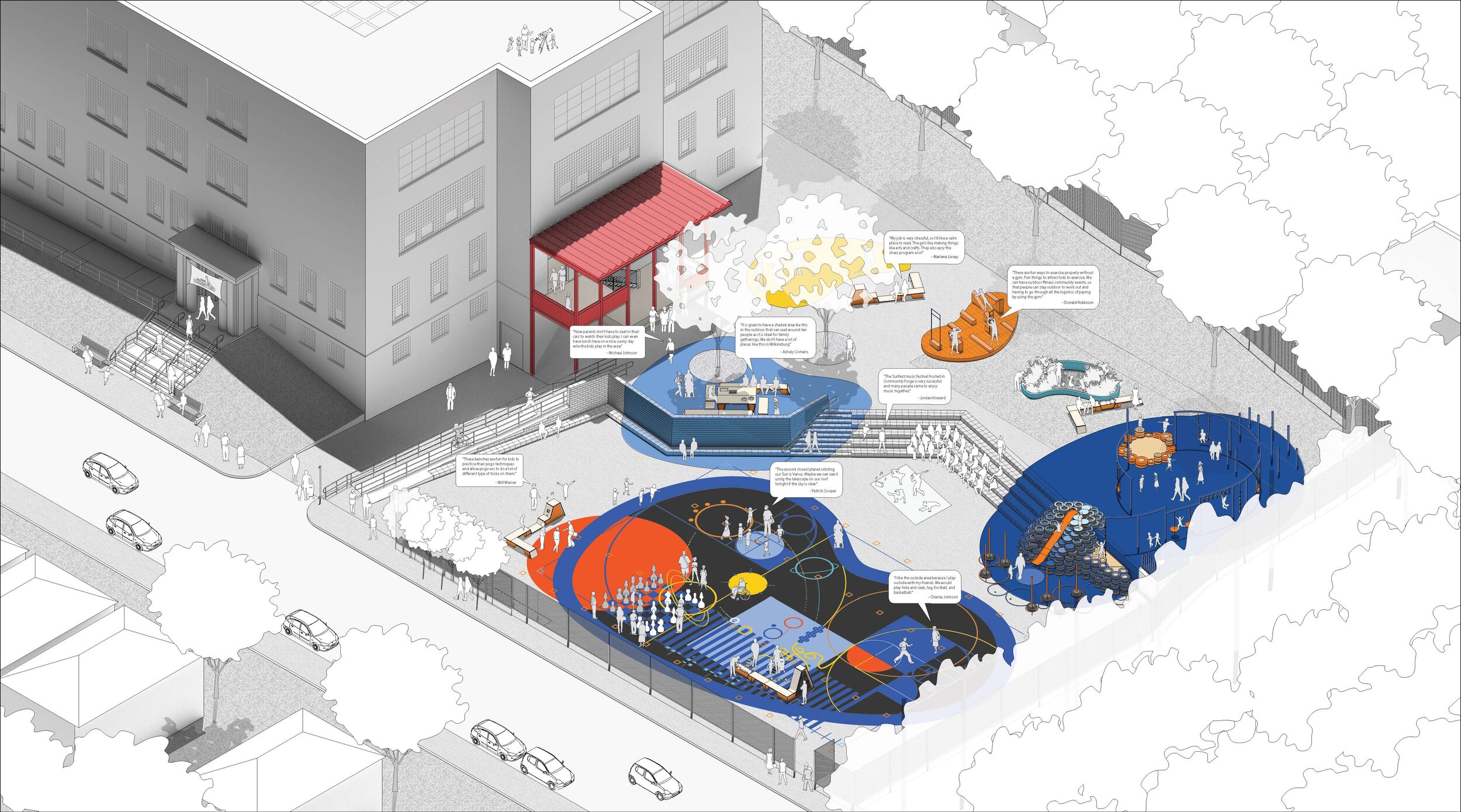The School of Architecture congratulates faculty members Jeremy Ficca and Stefan Gruber for receiving 2020 Architectural Education Awards presented by the Association of Collegiate Schools of Architecture (ACSA). Each year, ACSA honors architectural educators for exemplary work in areas such as building design, community collaborations, scholarship, and service. Award winners inspire and challenge students, contribute to the profession’s knowledge base, and extend their work beyond the borders of academy into practice and the public sector.
Read on for more information about Ficca and Gruber’s award winning projects. Learn about all the winners on the ACSA website and in the official press release. The winners will be celebrated at the ACSA 108th Annual Meeting March 12-14, 2020 in San Diego.
Jeremy Ficca was awarded a 2020 Architectural Education Award in the Creative Achievement category for his course Fabricating Customization
Ficca was awarded in the Creative Achievement category for his course Fabricating Customization. Ficca’s field of inquiry is digital workflow – working with a range of digital tools from 3-D modeling at the conceptual stage to building information modeling at the documentation stage to the actual fabrication of architectural components, from scale models to full size objects. His sponsored courses and workshops provide students an opportunity to engage in material and fabrication research by design practices. The two cycles of his course, Fabricating Customization, received support from Centria and provided an opportunity for an interdisciplinary group of students to conduct hands-on research into novel methods of freeform metal fabrication. Members of Centria’s R&D team engaged the group of students over these two years to offer expertise, while benefiting from the breadth of student research agendas.
Stefan Gruber was awarded a 2020 Architectural Education Award in the Collaborative Practice category for the project Urban Acupuncture for Community Forge
Gruber was awarded in the Collaborative Practice category for the project Urban Acupuncture for Community Forge. In Spring 2019, the Urban Collaboratory Studio at the CMU School of Architecture worked with Community Forge, a citizen-led initiative that is transforming Wilkinsburg’s former vacant school into a community and youth center. Community Forge is committed to youth empowerment, community collaboration, organizational incubation, and neighborhood wellbeing. Together with community members, both young and old, the studio began transforming the former school yard into a shared resource for the wider neighborhood. In weekly participatory design workshops with Community Forge’s youth throughout the semester, the studio supported the development of ideas and their translation into a coherent design strategy. The resulting urban design framework proposes an archipelago of islands programmed for diverse activities. The islands will be implemented incrementally over time, depending on funding and volunteer work. Aiming at setting the transformation in motion, the studio realized the first island “the field” that integrates games and sports in an educational landscape, as well as furniture elements sprinkled across the site.
Here design-build is not primarily concerned with delivering a final product—but in fact explores design as a tactical and performative tool for encouraging community engagement and setting in motion an incremental transformation process. Overall, the studio offers fourth and fifth year B.Arch students an opportunity to see a very small project through from conception to realization within only 15 weeks, and combine abstract systemic thinking with very concrete and hands-on action. In a collaborative setting, students go from exploring and analyzing the urban milieu of Wilkinsburg, to facilitating participatory design workshops with the community, to developing and implementing a strategic design intervention that promises to act as an urban catalyst for the neighborhood revitalization—in short Acupuncture Urbanism. The team was comprised of students Mounica Guturu, Ritchie Ju, Ghalya Alsanea, Fon Kornrat Euchukanonchai, Christine Kim, Rachel Park, Shariwa Sharada, Scarlet Nga Chin Tong, Chitika Vasudeva, Mariana Alberola Rezza, and Gautam Thakkar with Professor Stefan Gruber.


